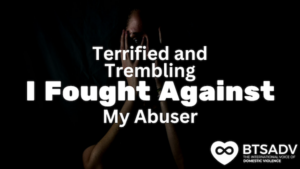
By Chyna Snell
As parents and caregivers, discovering that your child has been sexually assaulted can bring a range of emotions out of us. Children also experience many things following sexual assault, including, but not limited to, embarrassment, shame, confusion, and anxiety. While finding methods of processing your feelings about this situation, it is critical to offer effective support to your child. In order to do so, there are several important things to keep in mind when the abuse is disclosed. You might be doing some of these already, or have room to adapt them to fit with your child.
Perform a self-check for projections.
Naturally, your own feelings about abuse will likely come up in the healing process. Be mindful of your own responses and differentiate them from what your child is experiencing. Recognizing the contents of your own psyche will help prevent your child from feeling like they have to carry the burden of your emotions, which leads to increased anxiety. This is also important for being empathetic towards your child. With your own ideas put aside, allow yourself to acknowledge that they have complex emotions at this time. Avoid predicting or assuming that you know what emotions your child is experiencing.
Avoid treating your child as though they are different.
Sexual assault can alter the way that the world looks to your child. They need to feel reassurance that they aren’t any less amazing because of what happened. Young people are aware of and concerned about the stigma surrounding those who have been victims of sexual abuse. Try to reinforce their strengths and praise their coping skills. Surviving the assault means that they have had to draw on qualities like courage and resilience. Your child needs to know that you notice these things.
Restore a sense of safety.
You can only control what is in your hands to control. By helping them to get back to their normal routine as soon as possible, you will help your child along in their healing process.
Take an accepting approach.
Your child may already be blaming themselves for the assault and it’s a sad truth that they may be expecting or experiencing blame from others. Do your best to avoid being one of those people. Avoid probing or leading questions in order to help prevent your child from feeling worse about their experience. Questions of this nature can imply that you blame your child for the assault, or don’t believe them. By being careful not to blame the victim, you can avoid causing further hurt.
Get appropriate help.
Your child may struggle with abuse-related issues such as withdrawal from other people, changes in sleep patterns and appetite, low mood, and aggressive or irritable behavior. This list isn’t exhaustive, and a specialist will help identify your child’s specific needs in the healing process. It’s not uncommon for some families to want to handle the disclosure of abuse privately. That can be a mistake, potentially backfiring by increasing isolation when there is a need for specialized help. A large part of the impact that sexual assault has on your child will depend on the support system that they have in place.
Keep in mind that your child’s disclosure may be triggering for you, as well. It’s okay to seek support for yourself during this process. You can’t be an effective support system for your child if you aren’t taking care of yourself.
If you or someone you know is in an abusive relationship, there is help. You can visit the Break the Silence website at www.breakthesilencedv.org or chat with one of our helpline advocates at 855-287-1777.









